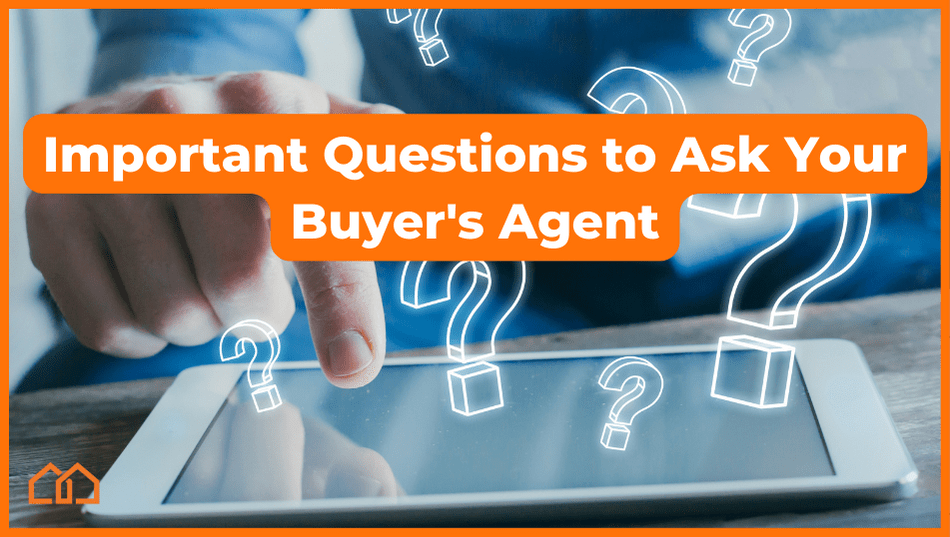Questions to Ask Your Buyer’s Agent
When you decide to buy a house, it’s important to have a real estate agent represent you. This enables you to navigate the home-buying process while being fully informed. The realtor that helps you buy a house is officially called a “buyer’s agent”. Meanwhile, the agent that helps someone sell their house is called a “listing agent or seller’s agent.” Before you look for a dream home, you should ask your buyer’s agent some interview questions to pave the way to a successful real estate transaction.
Q: What are the best ways, days, and times to contact you?
A: Every full-time professional has the right to unplug. Though the real estate industry is more flexible and not strictly 9-5, you and your agent should establish boundaries on business hours and approximate turnaround times for responses. Setting expectations from the get-go helps your relationship with your realtor run smoothly.
Deciding on preferred methods of communication, such as texting, phone calls, or email during certain times of the day can also be helpful. For example, texts can be allowed during times when both parties are busy at work or school, or if there is time-sensitive news, like home inspection report results, in the evening. Every client-realtor relationship is different, so deciding on what works for you from day 1 will make everything work better for the entire transaction.
Q: How long have you been an agent?
A: While years of experience don’t always equate one’s skills, knowledge does grow over time. A new agent can also do a good job when they work on a team, or with the support of a brokerage like Marketplace Homes. Experience in navigating bidding wars and other difficult situation is the mark of a seasoned real estate professional, so if you prefer someone who has experience or who is working with a team of experienced realtors, asking this question will lead you to the right agent.
Q: What’s that house really worth?
A: Top agents will give you an honest answer about what a house in question is worth. To do this, they run a comparative market analysis to see how the home stacks up against other properties that have recently sold in the area. They will tell you whether the listing price is correct or if it’s too high (or too low) to prepare you for making the right sale price offer.
Q: How much do I need to save for closing costs, agent fees, and a down payment?
A: While this is more of a lender question, real estate agents work closely with lenders and can give you a general idea of what you need to set aside to put an offer on a home. Typical closing costs are 3-6% of the home’s selling price, so the amount you need to save depends on the details of the home sale.
Down payments can range vastly between 0% for VA and USDA loans to 10-20% down for conventional loans. Depending on the loan program you select for your new home, experienced agents can help you with the overall math. So, normally your agent will ask you to multiply the house’s asking price by whatever percentage you want to put down and the average percentage of closing costs. You won’t know the exact details until your loan officer gives you the official loan estimate documents, but you can have a fair idea of what to expect.
Q: How do I find a lender?
A: The easiest way to find a lender is to speak with your buyer’s agent or go to your bank. A good buyer’s agent should have connections with some trusted loan offers to give you peace of mind. Brokerages usually have relationships with lenders that they trust too.
Speaking with a lender and getting a pre-qualification (estimate) letter is one of the first steps you should take before looking for a house. They can run numbers and find out what you qualify for and give you a prequalification letter, your key to house hunting. This helps potential buyers understand how much they can afford and if it’s the right them for them to buy a house. Then, the second step is to get the pre-approval letter, which requires a hard credit check and plenty of underwriting to get your loan approved.
Q: What neighborhoods do you recommend for buying a home?
A: Every local market is different, and competition changes depending on the type of home and its price range. If you’re in a competitive market for buyers, you can expect some bidding wars or give up on some seller concessions.
Making a home purchase in the right area is important for your quality of life and finances. Real estate agents know how to recommend the right property with your prequalification letter’s top dollar in mind. They are very good at directing you toward choices that are both practical and realistic regarding your needs.
Sometimes a buyer may want a house in town but then not have the budget for it. An experienced realtor will show you the houses you can afford and help you adjust expectations, or even recommend different markets that have the type of property you want if one market is lacking.
Q: What should I do with my current house?
A: Many homebuyers are already homeowners. If you’re a first-time homebuyer, then your journey is simpler: put an offer on the house. But if you need to free home equity to buy another house, then you have a few options to choose from. If you go to a typical brokerage, the answer is usually one-dimensional: put your current house on the market and sell it while making offers on houses and hoping yours gets accepted in time to close around the time your first house sells.
Sounds stressful? It certainly is, but experienced realtors know how to negotiate provisions like sale-leasebacks to make your transition easier. Working with a nationwide brokerage like Marketplace Homes also opens you to more options like remote cash offers that help you cash out on your old home when you buy a new construction home.
Q: How do I negotiate with home sellers?
A: You won’t have to. The best agents will step in and professionally negotiate every detail when you make an offer on a house. Whether you want to buy a new construction home or a resale home, a buyer’s agent will do all the talking. In fact, buyers shouldn’t ever talk to the home seller, and vice versa. This keeps things professional, cordial, and ensures that everyone will get the fairest deal for the market.
A Proven Track Record of Success
If you’re looking for a new construction home, look no further than Marketplace Homes for solid real estate representation. Our past clients have been able to eliminate home sale contingencies upfront with our new construction programs, making it simpler to sell an old house and move into a dream home. To learn more about what we can do for you in representing you as a buyer, investor, or seller, contact us today!
Alicia Persson is a Content Strategist SEO writer at Marketplace Homes, utilizing previous years of experience on real estate teams that specialized in investments and property management. Before she joined Marketplace Homes, she was also a freelance writer for 7 years, leading to a specialization in real estate and home living content for boutique digital marketing agencies. During her writing years, she learned the basics of SEO and gained experience writing for many different clients, making her versatile at creating diverse content.
She is a proud University of Virginia master’s graduate and enjoyed her undergraduate years at the University of Mary Washington. When Alicia is not writing, she plays keytar and sings in a local 90’s rock cover band, or she spends time with her amazing family.

